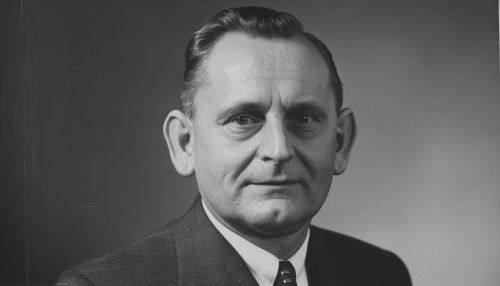Emil von Behring
Early Life and Education
Emil Adolf von Behring was born on March 15, 1854, in Hansdorf, Prussia (now Ławice, Poland). He was the eldest of 13 children in a family of modest means. Despite the financial constraints, Behring's parents encouraged his education, and he attended the Gymnasium in Hohenstein (now Olsztynek, Poland).
In 1874, Behring enrolled at the Army Medical College in Berlin, where he was trained as a military doctor. During his time at the academy, he was influenced by the works of Robert Heinrich Hermann Koch, a renowned German microbiologist. This sparked his interest in the field of bacteriology, the study of bacteria.
Career and Research
After completing his studies in 1878, Behring served as a military doctor for several years. However, he continued his research in bacteriology, focusing on the role of bacteria in infectious diseases.
In 1889, Behring began working at the Institute for Infectious Diseases in Berlin, where he collaborated with Shibasaburo Kitasato, a Japanese physician and bacteriologist. Together, they conducted groundbreaking research on diphtheria and tetanus, two deadly diseases caused by bacterial toxins.
Behring and Kitasato discovered that the body produces proteins, known as antibodies, in response to the bacterial toxins. These antibodies neutralize the toxins and help the body fight off the infection. This was a significant breakthrough in the understanding of the body's immune response to bacterial infections.
In 1890, Behring published his findings, which formed the basis of serum therapy. This therapy involves injecting a patient with serum from an animal that has been immunized against a particular disease. The serum contains antibodies that can fight off the disease in the patient's body.
Behring's serum therapy was first used to treat diphtheria, earning him the nickname "the savior of children". His work laid the foundation for the development of vaccines and antitoxins, which have saved countless lives over the years.
In 1895, Behring was appointed as a professor at the Philipps University of Marburg, where he continued his research on serum therapy. He also started a company, Behringwerke, to produce sera and vaccines.
Contributions to Medicine
Behring's contributions to medicine are immense. His discovery of the body's immune response to bacterial toxins revolutionized the field of immunology. His development of serum therapy provided a new way to treat infectious diseases, which was particularly effective against diphtheria and tetanus.
Behring's work also paved the way for the development of vaccines, which are one of the most effective ways to prevent infectious diseases. His research has had a profound impact on public health, saving countless lives and improving the quality of life for many more.
Honors and Awards
In recognition of his contributions to medicine, Behring received numerous honors and awards. In 1901, he was awarded the first Nobel Prize in Physiology or Medicine for his work on serum therapy. He was also bestowed with the title of "von" in 1901, elevating him to the Prussian nobility.
Behring was also honored with the Cameron Prize for Therapeutics from the University of Edinburgh in 1902. In addition, he received honorary doctorates from several universities, including the University of Cambridge and the University of Oxford.
Later Life and Legacy
Behring continued his research at the University of Marburg until his retirement in 1915. He passed away on March 31, 1917, in Marburg, Germany.
Behring's legacy lives on in the field of medicine. His discoveries in immunology and serum therapy continue to influence medical research and treatment strategies. The Behringwerke, now part of the global healthcare company CSL Behring, continues to produce sera and vaccines, carrying on Behring's mission to combat infectious diseases.


